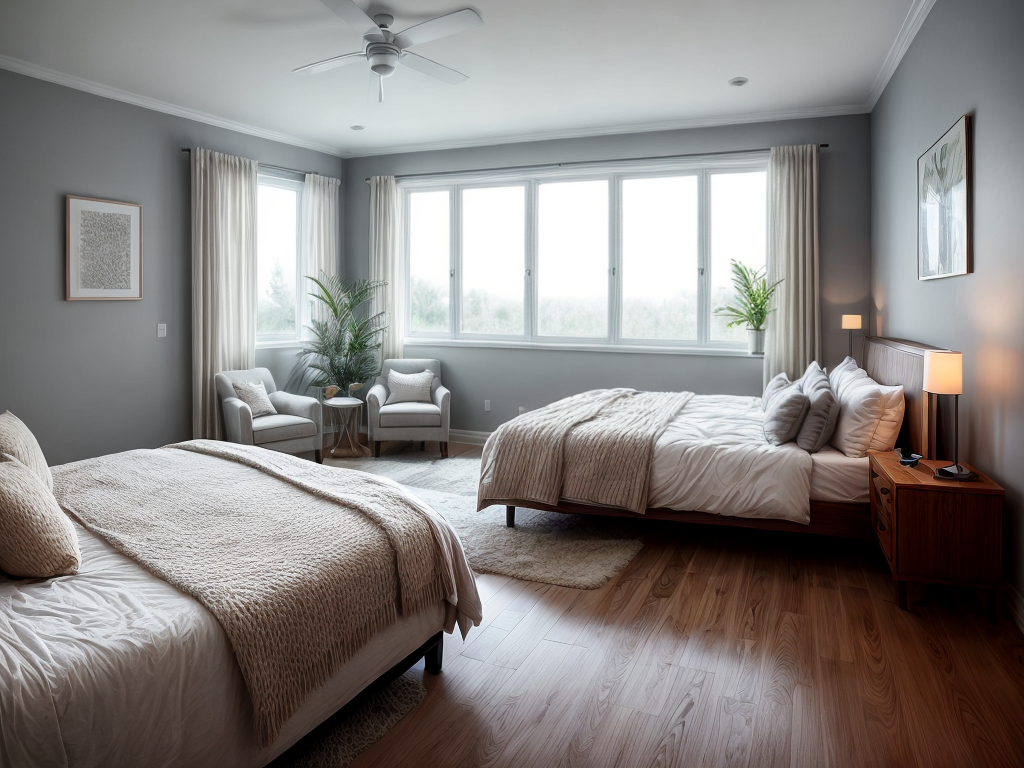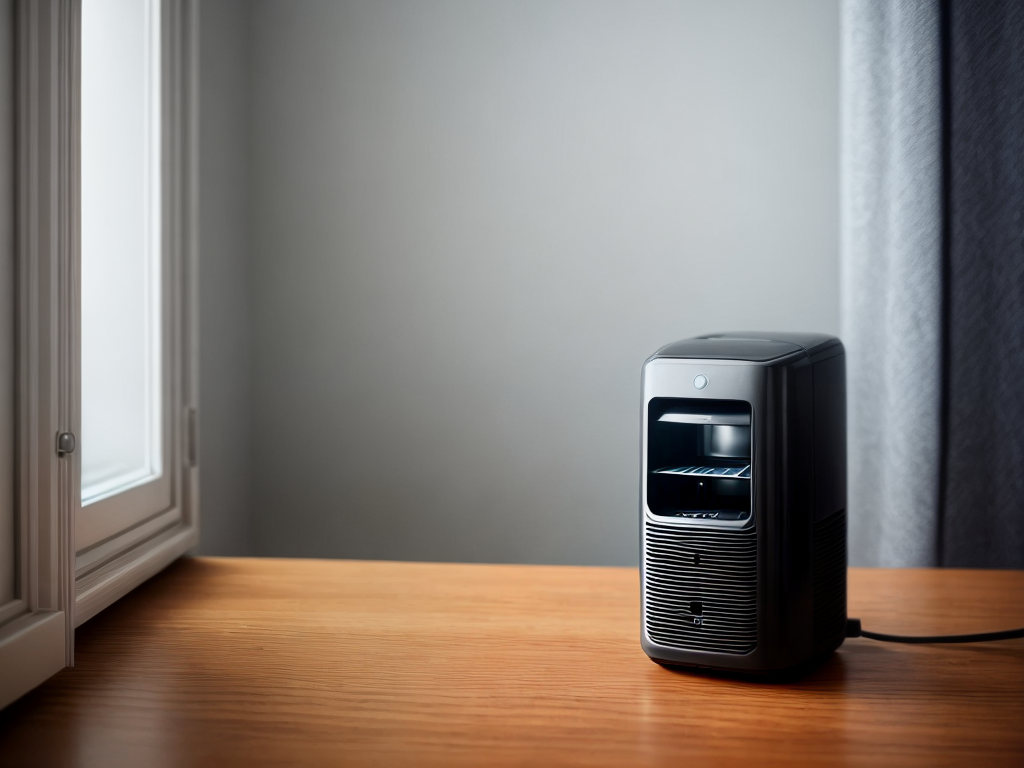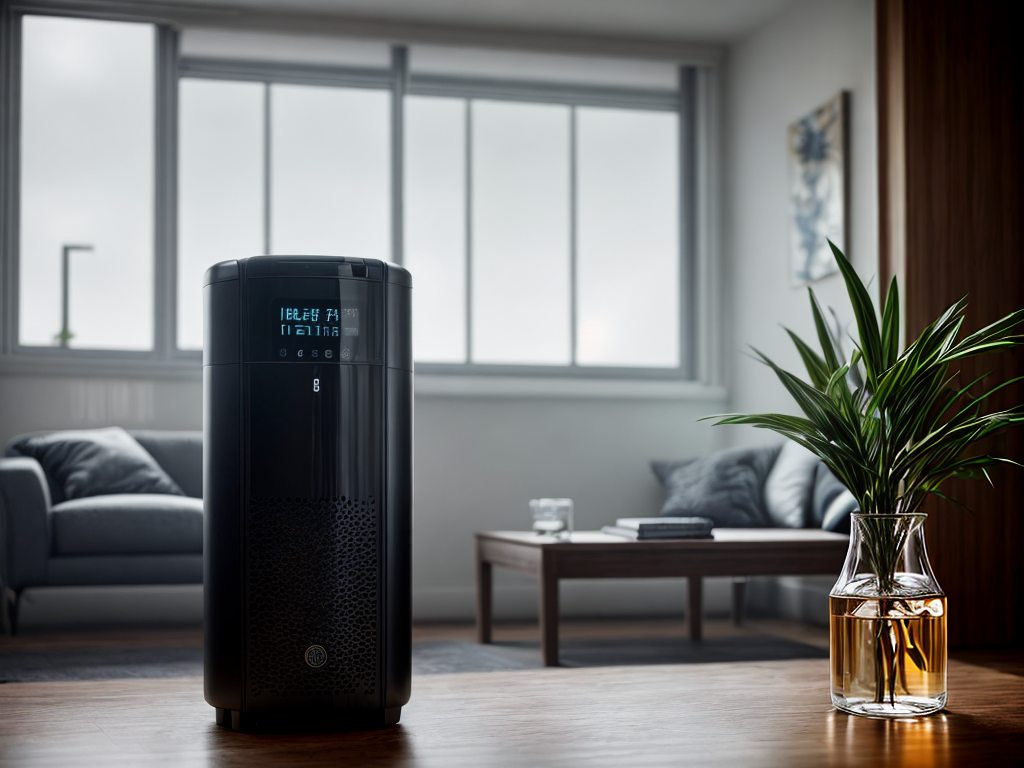
As I lay in bed, tossing and turning like a ship caught in a storm, I couldn’t help but wonder if there was a way to improve my sleep. Little did I know, the answer was right in front of me, hidden within the realm of dehumidifiers. These humble devices hold the key to enhancing both comfort and health, offering a pathway to a blissful night’s sleep. So, what exactly is the link between dehumidifiers and the quality of our slumber? Join me on this journey as we explore the fascinating connection and discover the myriad benefits that await us.
The Link Between Humidity and Sleep Quality
I’ve realized that the humidity in my bedroom directly affects the quality of my sleep. Controlling the humidity levels in my sleep environment has become crucial for ensuring a restful night’s sleep. Not only does high humidity make the air feel heavy and uncomfortable, but it can also have a significant impact on my cognitive function during the day.
Studies have shown that high humidity can impair cognitive function, making it harder to concentrate, think clearly, and remember information. When the air is too humid, it can disrupt the normal sleep cycle, leading to sleep disturbances and even sleep disorders. This is because high humidity can make it difficult for the body to regulate its temperature, causing discomfort and restlessness.
Additionally, excessive humidity creates the perfect breeding ground for allergens such as dust mites and mold, which can trigger allergies and respiratory issues. These conditions can further disrupt sleep and contribute to the development of sleep disorders.
To ensure optimal sleep quality, it is important to maintain a comfortable humidity level in the bedroom. Using a dehumidifier can help regulate humidity levels and create a more conducive sleep environment. By controlling humidity, I can improve my sleep quality and enhance my overall well-being.
How Dehumidifiers Improve Air Quality
As someone who values clean, fresh air, I have always been interested in how dehumidifiers can improve air quality. One of the key benefits is their ability to control air moisture, ensuring that the humidity levels in your home are optimal. By reducing excess moisture, dehumidifiers can also help to prevent mold growth, which can be a major contributor to poor air quality and respiratory issues.
Air Moisture Control
Does controlling the moisture in the air with a dehumidifier improve air quality? Absolutely. Air moisture management plays a crucial role in achieving optimal indoor comfort and maintaining a healthy environment. By reducing excess humidity, dehumidifiers help control mold and mildew growth, dust mite populations, and the spread of bacteria and viruses. They also prevent musty odors and the deterioration of furniture, flooring, and other belongings. Humidity control is especially important for individuals with respiratory conditions, as high humidity can exacerbate symptoms like allergies and asthma. With a dehumidifier, you have the power to create a comfortable space tailored to your needs. By maintaining an ideal moisture level, you can ensure better air quality, improved health, and a more enjoyable living environment. Take control of your air today with a quality dehumidifier.
Reducing Mold Growth
Controlling air moisture with a dehumidifier not only improves air quality but also significantly reduces the growth of mold. Mold can thrive in areas with high humidity, leading to various health issues and structural damage. By using a dehumidifier, you can prevent moisture damage and maintain a healthy indoor environment. Here’s how:
- Set the ideal humidity level: Keep the humidity level below 50% to discourage mold growth. A dehumidifier allows you to easily monitor and adjust the humidity level in your home.
- Regularly empty the water tank: Ensure proper dehumidifier maintenance by emptying the water tank regularly. Standing water in the tank can become a breeding ground for mold and bacteria.
- Clean and replace filters: Clean or replace the filters in your dehumidifier to prevent the accumulation of dust, allergens, and mold spores. This helps maintain optimal air quality and reduces the risk of mold growth.
Reducing Allergens and Asthma Triggers With Dehumidifiers
Reducing allergens and asthma triggers is a crucial aspect of maintaining a healthy living environment. Dehumidifiers play a significant role in achieving this by controlling allergens and reducing the presence of asthma triggers such as dust mites, mold, and mildew. By using a dehumidifier, I can effectively improve indoor air quality, minimize allergic reactions, and experience fewer asthma symptoms, leading to overall improved respiratory health.
Allergen Control Benefits
Using a dehumidifier in my bedroom has significantly reduced the allergens and asthma triggers that used to disturb my sleep. It has provided me with the control I need to create a healthier environment. Here are three ways in which the dehumidifier has helped improve the air quality in my bedroom:
- Reduced Dust Mites: By lowering the humidity levels, the dehumidifier inhibits the growth of dust mites, which are a common allergen. This has greatly reduced my exposure to these microscopic creatures.
- Mold Prevention: The dehumidifier effectively controls moisture, preventing mold growth. Mold spores are a major trigger for my asthma, so having a dehumidifier has significantly reduced the risk of mold-related respiratory issues.
- Pollen Control: The dehumidifier also helps in minimizing pollen levels in the air. This is particularly beneficial during allergy season, as it reduces my exposure to pollen and alleviates symptoms.
Asthma Symptom Reduction
Since using a dehumidifier in my bedroom, I have experienced a significant reduction in asthma symptoms and triggers. Managing asthma can be a challenge, especially when it comes to controlling allergens and triggers in the environment. However, incorporating a dehumidifier into my asthma management routine has been a game-changer. The benefits of using a dehumidifier for asthma are remarkable. By reducing the humidity levels in my bedroom, the dehumidifier helps to inhibit the growth of mold and dust mites, which are common asthma triggers. Additionally, it helps to improve air quality by filtering out allergens and pollutants. To illustrate the effectiveness of using a dehumidifier in asthma management, consider the following table:
| Asthma Symptoms | Before Using Dehumidifier | After Using Dehumidifier |
|---|---|---|
| Wheezing | High | Low |
| Shortness of breath | Frequent | Rare |
| Coughing | Persistent | Occasional |
| Chest tightness | Regular | Rare |
Improved Respiratory Health
Incorporating a dehumidifier into my asthma management routine has not only reduced my asthma symptoms, but it has also greatly improved my respiratory health. The respiratory benefits I have experienced since using a dehumidifier include:
- Reducing Allergens: By maintaining optimal humidity levels in my home, the dehumidifier helps to minimize the presence of allergens such as dust mites, mold, and pet dander. This has significantly reduced my allergic reactions and improved my overall respiratory health.
- Asthma Trigger Prevention: High humidity levels can trigger asthma attacks. By effectively reducing moisture in the air, the dehumidifier helps to prevent the growth of mold and mildew, which are common asthma triggers. This has resulted in fewer asthma episodes and better control over my condition.
- Improved Sleep Quality: Excessive humidity can make it difficult to breathe and disrupt sleep. With the dehumidifier maintaining a comfortable humidity level, I have noticed a significant improvement in my sleep quality. I wake up feeling refreshed and breathe easier throughout the night.
Preventing Mold and Mildew Growth in Your Bedroom
To prevent the growth of mold and mildew in my bedroom, I make sure to regularly use a dehumidifier. By doing so, I can effectively prevent condensation formation and create a healthier environment. Dehumidifiers offer numerous benefits in bedrooms, especially when it comes to combating mold and mildew. These appliances work by removing excess moisture from the air, which is essential in preventing the growth of these harmful substances.
Mold and mildew thrive in damp and humid conditions, making bedrooms susceptible to their growth. By using a dehumidifier, I can maintain optimal humidity levels and reduce the risk of mold and mildew formation. Dehumidifiers extract moisture from the air, preventing it from accumulating on surfaces and creating a breeding ground for these unwanted intruders.
Regular use of a dehumidifier not only prevents mold and mildew growth but also helps improve air quality in my bedroom. By reducing excess moisture, dehumidifiers minimize the presence of allergens and irritants, creating a healthier sleeping environment. I can breathe easily and enjoy a restful sleep, knowing that mold and mildew growth is being actively prevented.
Enhancing Comfort and Cooling With Dehumidifiers
Using a dehumidifier can greatly enhance comfort and cooling in your bedroom. Here are three ways that a dehumidifier can help you achieve a more comfortable and cool sleep environment:
- Enhancing energy efficiency: By removing excess moisture from the air, a dehumidifier can help your air conditioner work more efficiently. When the air is humid, it feels warmer than it actually is, causing your AC to work harder to cool the room. By reducing humidity levels, the dehumidifier allows your AC to cool the room more effectively, saving energy and lowering your electricity bills.
- Reducing skin irritation: High humidity levels can lead to increased moisture on your skin, which can contribute to skin irritation and discomfort. By maintaining optimal humidity levels in your bedroom, a dehumidifier can help reduce skin irritation, allowing you to sleep more comfortably and wake up with healthier, happier skin.
- Improving air quality: Excess moisture in the air can create an ideal environment for mold, mildew, and dust mites to thrive. These allergens can cause respiratory problems, allergies, and worsen asthma symptoms. A dehumidifier helps to reduce these allergens by maintaining optimal humidity levels, improving the overall air quality in your bedroom.
Promoting Better Sleep and Overall Health
A dehumidifier can play a crucial role in promoting better sleep and overall health. By reducing excess moisture in the air, it creates an environment that is conducive to relaxation and sleep. When the humidity levels are too high, it can be difficult to fall asleep and stay asleep throughout the night. This is because high humidity can make the air feel heavy and sticky, leading to discomfort and restlessness.
Furthermore, a dehumidifier can also contribute to improving sleep hygiene. Sleep hygiene refers to the practices and habits that are necessary for a good night’s sleep. One important aspect of sleep hygiene is maintaining a comfortable sleep environment. By controlling humidity levels, a dehumidifier helps to create an optimal sleep environment that is cool, dry, and comfortable. This can enhance the quality of sleep, allowing for deeper and more restorative rest.
In addition to promoting better sleep, using a dehumidifier can also have positive effects on overall health. High humidity levels can create a breeding ground for allergens such as dust mites and mold, which can exacerbate respiratory conditions and allergies. By reducing moisture in the air, a dehumidifier helps to inhibit the growth of these allergens, improving indoor air quality and reducing the risk of respiratory problems.








